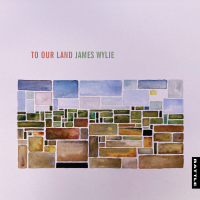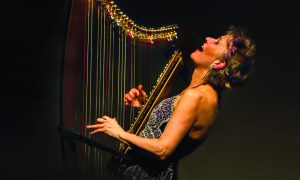
Paul is an expert on all things Django: he is currently completing his M.A. in Jazz History and Research at Rutgers University, where he has written a thesis entitled Django Reinhardt The Jazz Musician: His Abilities; His Influence; His Legacy. Paul is also a member of the Hot Club of Detroit, a group of young musicians dedicated to furthering Django's legacy by combining his music with contemporary jazz. Their new record, Its About That Time (Mack Avenue), will be coming out in April. In this essay, Paul offers some criticism to those who have created the mythology of Gypsy Jazz at the expense of historical fact and the spirit of jazz improvisation:
Yesterday I spent the day thinking to myself: 100 years of Django, what does that mean to me? (Well, most of the day. I did manage to watch the Jets game. My condolences New Yorkers.) I found my thoughts dwelling in particular on his identity as a jazz musician knowing that identity has been obscured by recent tellings of history. Reinhardt biographer Michael Dregni had this to say in his book Gypsy Jazz: In search of Django Reinhardt and the Soul of Gypsy Swing:
When Django was at his zenith in the 1930s and 1940s, no one termed the music he played Gypsy Jazz. It was simply jazz, played by a Gypsy with a guitar. He learned the music primarily from recordings and only later by playing with many of the early greats Louis Armstrong, Coleman Hawkins, Duke Ellington, Eddie South. And with the music from those foreign 78s still reverberating in his ears, he was trying to sound as American as he possibly could. Combining his influences, his pioneering use of the guitar, and his individual sensibility, Django created a music of his own. There are few others who singlehandedly gave birth to a whole musical genre. And its a genre that is today continually recreated.
One of the many fruits that has grown from Django Reinhardt's musical legacy is the network of annual festivals dedicated to the spirit of his music. Some of these events are entitled Django Reinhardt Festivals, some are called Gypsy Jazz Festivals. These festivals are the primary vehicle through which Djangos music is celebrated. The term Gypsy Jazz describes the style of music made famous by Django's group, the Hot Club of France, which has since spawned an entire community of musical imitation and tribute. Im not sure where the term came from, but it enjoyed an explosion of popularity after the 1999 release of Woody Allen's Sweet and Lowdown.
Typically, its practitioners many of them Gypsies perform music in the style of the Hot Club of France, almost always using phrases from Djangos early vocabulary, and sometimes even performing his solos note for note. There is little progressive improvising in Gypsy Jazz. There are some great musicians who play Gypsy Jazz, and it has its own niche fan base. Its just not what Django was all about. What is important to remember is that Django was a jazz musician, not some Gypsy, folk, world music hybrid musician that the title Gypsy Jazz suggests.
Most of the major annual festivals that honor Django's music, usually employ one or more of these Gyspy Jazz musicians/groups. A problem that arises as a result is that audiences come to think that what Django played was this Gypsy Jazz, completely separate from the American jazz he played. Worse, some of these players are less than capable jazz improvisers. Fine musicians, but not jazz improvisers at the level of Django. (Then again, who is?).
The problem arises when fans and amateur musicians who practice or experience Gypsy Jazz come away with a misrepresentation of Django's ability as a jazz improviser. When a player performs a solo which was originally improvised, it sounds contrived that feeling of spontaneity is missing. Django understood harmony and voice leading in a manner that coincided with his contemporaries in bebop, and was a very skilled, patient jazz improviser who knew how to craft a solo that told a story. It is that kind of climactic improvising that is often lacking in Gypsy Jazz.
Furthermore, writers tend to over-romanticize the story of Django's life, which can be a distraction from his musical abilities. It is true, his life story is incredible all the more reason that we should take special care to correctly document the musical details of Django's life.
There is plenty of bad information out there. According to the fifteenth edition of Encyclopedia Britannica, Django was of Basque origin. Many others have erroneously claimed that the Hot Club of France took its original inspiration from the violin/guitar duo of Joe Venuti and Eddie Lang. But Stephane Grappelli, the violinist and co-founder of the group Hot Club of France, recalled Django saying Lang's playing was very limited, and there was nothing to be learned from it.
The most striking example of ignorance having to do with Django's playing comes from Gunther Schuller's book The Swing Era. Schuller wrote in a footnote: It would be fascinating to know whether [Charlie] Christian ever heard in his formative years the playing of Django Reinnhardt, that extraordinary Belgian-born maverick, who also developed early on an essentially melodic/linear virtuoso style. This, however, came out of French-Spanish Gypsy folk traditions rather than any intrinsically American jazz styles, let alone blues. (emphasis added) Anyone who has carefully listened to Djangos recordings knows that his playing is very much in an intrinsic American swing style, and deeply rooted in blues who bends a string better than Django?
If you google Famous Belgians, the first result is the web page famousbelgians.net. Reinhardt misses out on the overall top 10 behind such luminaries as Eddy Merckx and Peter Paul Reubens (ed. note: NOT Paul Reubens man I loved that show!) It is divided into categories, and includes one for musicians. First musician on that list is Toots Thielemans, the jazz harmonica player. Django comes in second, with the description inventor of the two finger guitar playing technique. I suppose the fact that we are even talking about Django Reinhardt 100 years after his birth says something about his uniqueness. But I feel obligated to to get the message out there: Django was first and foremost a jazz musician. His musical achievements have earned him a place in the jazz pantheon, and not just as a novelty two-fingered sideshow.
As we celebrate the past century of Django's influence, Ill leave the final words to fellow guitarist Julian Bream, who cited Reinhardt as an inspiration:
My Father had a number of very good jazz records, but the music that really interested me, and enthused me was the Hot Club of France with Stephane Grappelli and Django Reinhardt. It was Reinhardt's guitar playing that so stimulated me musically, that I was drawn to the guitar like a magnet. I felt his playing was so evocative, so powerful at times, so dramatic, and then other times so lyrical, that he seemed to hold within his musical grasp the whole gamut of human expression.
Thanks to Paul for taking the time to contribute. Please leave a comment or question both Paul and I will be reading and responding to them.
























